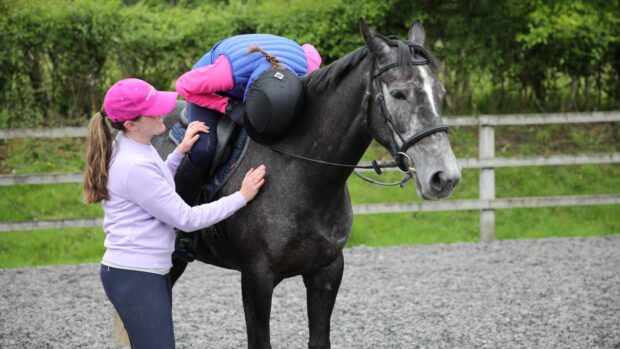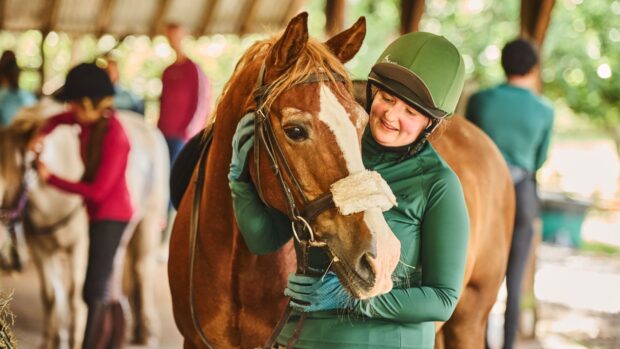AP McCoy has spoken out about the mental battles, such as depression, and the unique pressures that jockeys face on a daily basis.
The former 20-time champion jump jockey features in a new documentary about mental health and wellbeing released today (10 October) to coincide with World Mental Health Day.
The eight-minute film is part of the ‘Jockey Matters’ series produced by the Jockey Employment and Training scheme (JETS) and the Professional Jockeys Association (PJA). The short films focus on a range of issues surrounding jockey welfare, including nutrition, fitness, rehabilitation and now mental health.
“Sport is not a very level thing, it’s not like a nine-to-five job where the same things happen every day,” said AP. “You experience the highs and the lows, but it’s coping with the lows that’s the most difficult part.”
Other jockeys speaking openly on film about personal battles include Daryl Jacob, Mark Enright and dual Grand National-winning jockey Leighton Aspell, who briefly retired from race-riding in 2007.
Mark Enright was the first jockey to speak publicly about suffering from depression and it is hoped the film will encourage jockeys to speak out about their experiences.
The documentary also signposts the 24-hour PJA confidential wellbeing phoneline set up to help jockeys who are struggling with the day-to-day pressures of the weighing room.
“The world’s best coach I’ve ever met in sport recently told me the greatest strength you have is to ask for help. In the past it was seen as a sign of weakness, but that is total nonsense,” stresses sports psychologist Michael Caulfield.
In July this year, six-time British champion Flat jockey Kieren Fallon was forced to retire from the saddle following an ongoing battle with depression, for which he received medical treatment.
Continued below…
Related articles:
Depression forces Kieren Fallon to quit race riding
‘I credit Murphy with getting my head straight’: when horses have healing powers
Jockey run over by ambulance after being kicked in the face
Both the British Horseracing Authority and Racing Welfare signed the Mental Health Charter this year — joining the PJA as signatories.
“Given the unique pressures faced by jockeys, we knew how important it was to offer them a service such as the PJA helpline,” added Paul Struthers, the chief executive of the PJA.
“More and more jockeys are using it and we’re hoping that the one-to-one confidential sessions will play a vital role in improving the mental wellbeing of jockeys across the country.”





